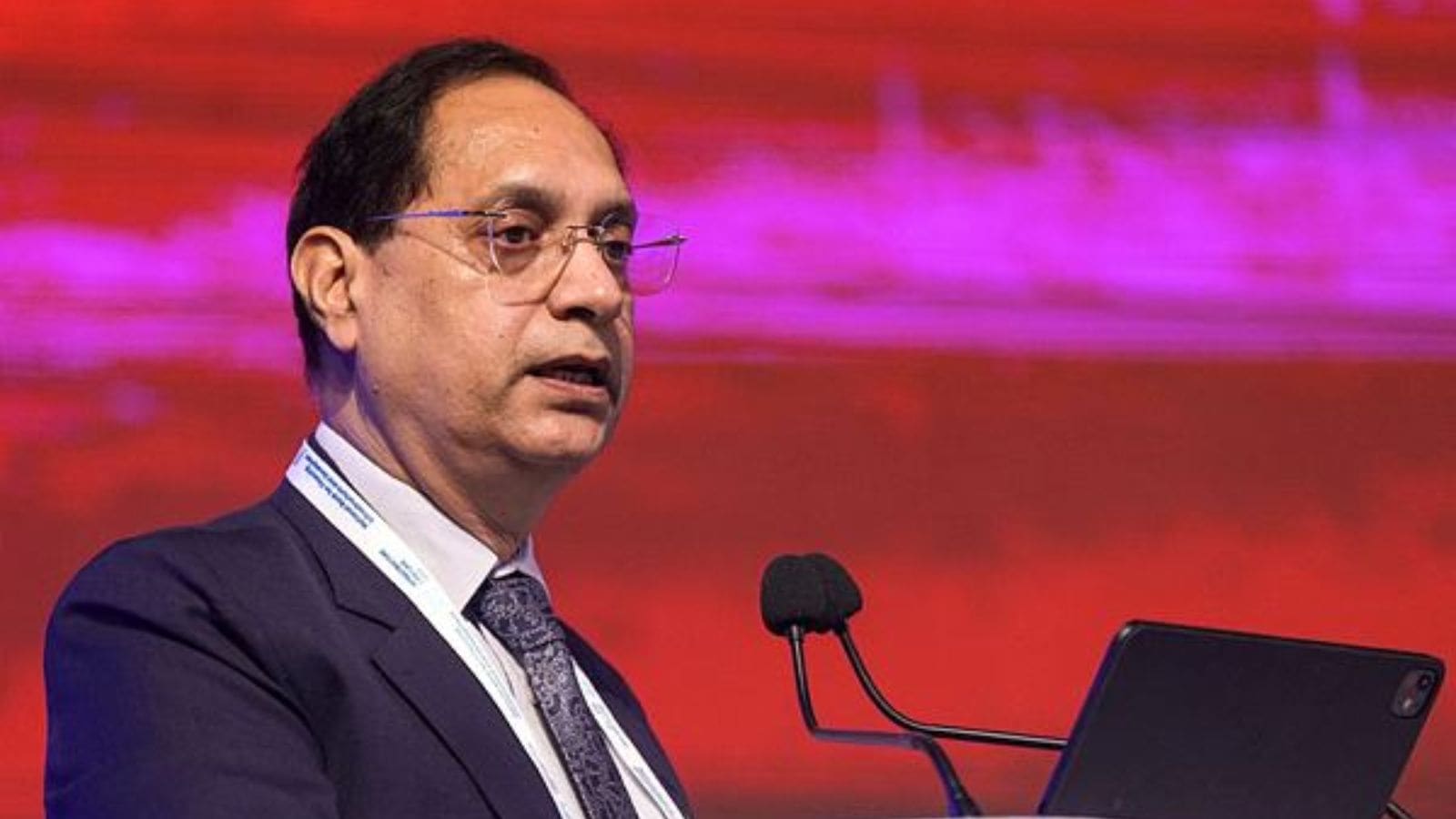Accelerate asset monetisation across sectors to boost infrastructure creation, says SEBI Chairman
Pandey said that the asset monetisation plan of the Central government has played a key role in development of the market for Infrastructure Investment Trust (InvITs).
 SEBI Chairman Tuhin Kanta Pandey during the ‘Infrastructure Conclave 2025’, in Mumbai, Maharashtra, Thursday, Sept. 18, 2025. (PTI Photo)
SEBI Chairman Tuhin Kanta Pandey during the ‘Infrastructure Conclave 2025’, in Mumbai, Maharashtra, Thursday, Sept. 18, 2025. (PTI Photo)The Securities and Exchange Board of India (Sebi) chairman Tuhin Kanta Pandey on Thursday called for faster asset monetisation efforts across sectors such as roads, railways and ports to support infrastructure development.
Pandey said that the asset monetisation plan of the Central government has played a key role in development of the market for Infrastructure Investment Trust (InvITs).
“Going forward, there is a need to accelerate asset monetisation in various sectors such as roads, railways, ports, airports, energy, petroleum and gas and logistics. State governments, barring a few, are yet to crystalise asset monetisation plans to provide further boost to infrastructure creation. This gap needs to be addressed,” Pandey said at an infrastructure conclave organised by the National Bank for Financing Infrastructure and Development (NaBFID).
For such asset monetisation, the chairman said, a host of products and models such as InvITs, Real Estate Investment Trusts (REITs), various forms of public private partnership (PPP) and securitisation.
The chairman stated that infrastructure creation requires capital in massive quantities, which cannot be met with public resources alone.
“The government and banks cannot, and should not, carry this (infrastructure financing) burden by themselves. This is where the capital market steps in — as a powerful engine for mobilising long-term funds, diversifying risks, and ensuring that capital finds its most productive use,” he said.
Capital markets bring long-term patient capital by channelising savings from pension funds, insurance companies, sovereign wealth funds, and long-horizon investors into infrastructure assets. They also help in diversifying sources of finance and offer a risk-sharing model.
The Sebi chairman also listed out various measures taken by the markets regulator to strengthen the link between infrastructure and markets. Talking about challenges in infrastructure financing, Pandey said that funds raised so far, whether through municipal bonds or REITs/InvITs, are impressive compared to the past but remain small compared to the trillions of rupees needed.
He said the investor base in the country is still narrow, with institutional investors dominating, while retail and foreign investors remain cautious.
“Thin secondary market trading means liquidity is limited, which further discourages participation,” the Sebi chairman noted.
- 01
- 02
- 03
- 04
- 05































